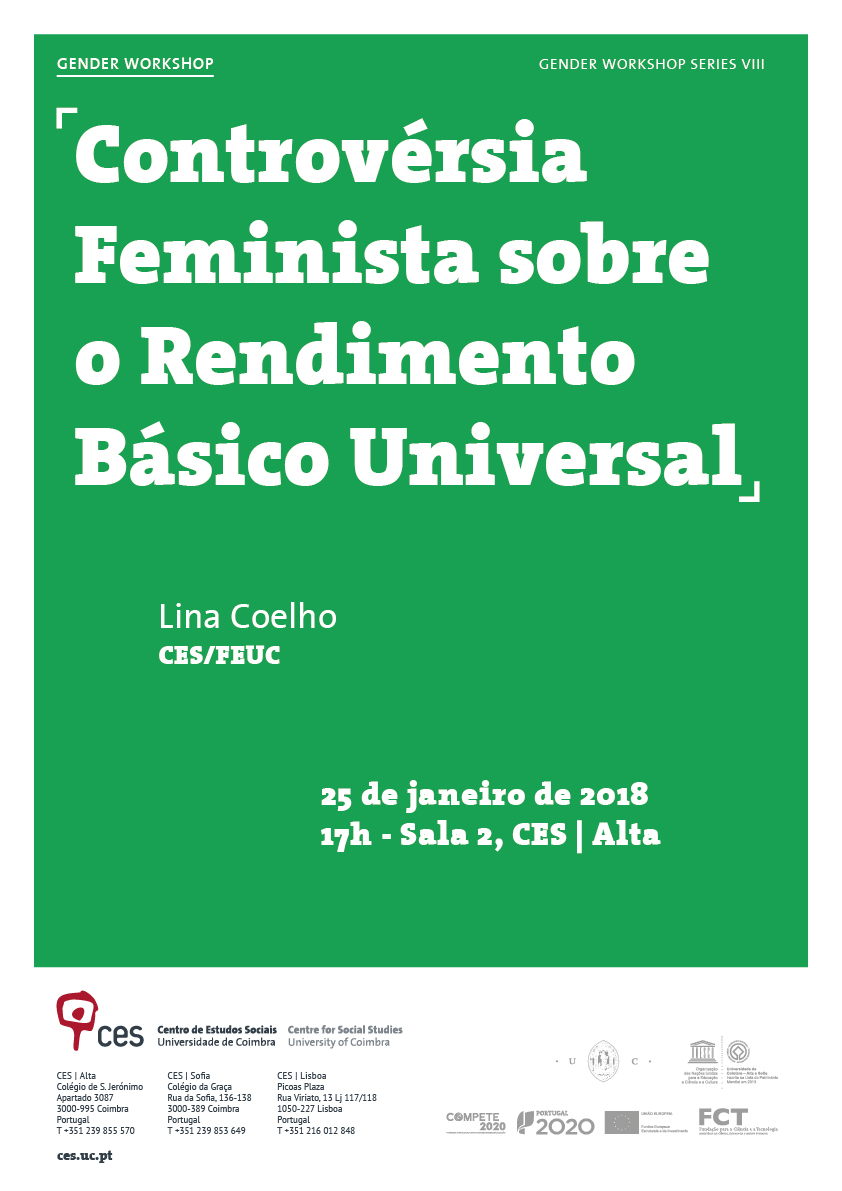Gender workshop
Feminist Controversy on Universal Basic Income
Lina Coelho (CES/FEUC)
January 25, 2018, 17h00
Room 2, CES | Alta
Overview
The issue of the effects of Unconditional Basic Income (RBI) on the promotion of gender equality is controversial. On the one hand, it is argued that the RBI will contribute to women's economic autonomy by strengthening their bargaining power in the family, while eliminating the dependence of social security systems on paid work that disadvantages women (Fitzpatrick, 1999; McKay, 2001; 2005; Zelleke, 2011; McLean, 2016, 2015). On the other side, it is countered that the RBI, by disconnecting income from the employment situation, will return women to the domestic space, in accordance with the prevailing gender social roles, thus causing a regression in the traditional division of labour between men and women and, consequently, on the progress already achieved in gender equality (Gheaus, 2008, Robeyns, 2001).
It must be recognized that the (partial) dissociation between income and employment that the RBI entails does in fact involve the risk of reinforcing the segregation of gender roles. But on the other hand, as a measure aimed at eradicating poverty, the RBI will favour women in a privileged way as they are overrepresented in the population at risk of poverty. On the other hand, the disconnection between income and employment can help to bridge the rigid boundary between unpaid (predominantly female) work and paid (still male) work. In this sense, the RBI will be an important tool to revalue the socially useful work that is currently gracefully rendered and that, although not exhausting itself in rearing and caring (reproductive work), it finds in this its most significant expression.
Ultimately (and foremost), by ensuring minimum economic security for all people, RBI will contribute to the economic autonomy and social status of the most disadvantaged women, thus being a powerful tool to overcome the intersectional disadvantages between gender, class and race, among others
Bio note
Lina Coelho is assistant professor at the Faculty of Economics - University of Coimbra and research fellow at the Research Group on Science, Economy and Society of the Centre for Social Studies (CES). She obtained her PhD in Economics from the same university, where she studied household and gender inequalities in Portugal. Her research interests include topics of economic inequality, feminist economics and household economics. Lately, she has been interested in money management in couple households, household economic decision making and the effects of economic crisis in intra-household inequalities. She has published several works on these issues.
Recommended readings:
Coelho, Lina, “RBI, segurança económica e igualdade de género”.
Zelleke, Almaz (2011), “Feminist political theory and the argument for an unconditional basic income”, Policy & Politics 39 (
[The suggested texts are available in open-access. If you have difficulty accessing, you can send an email requesting them to gw@ces.uc.pt]
[Within the Gender Workshop Series VIII that takes place between October 2017 and June 2018]


